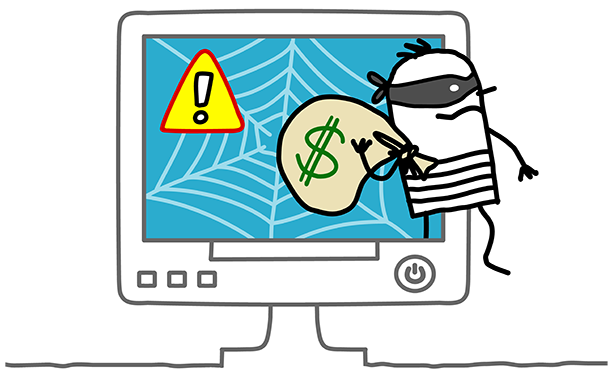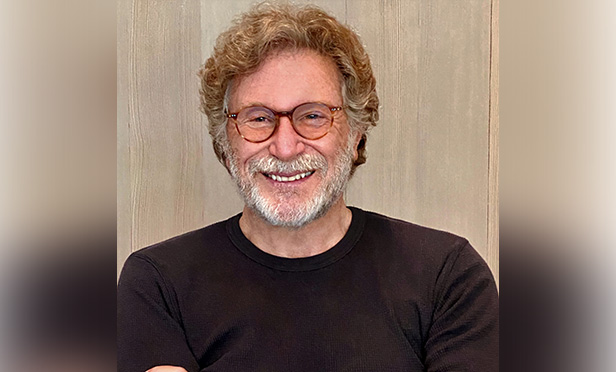
Romesh Ratnesar: You're the head of a private investigative firm, Quest Research and Investigations LLC, and have written a book on your industry, "The Modern Detective: How Corporate Intelligence Is Reshaping the World." One of the themes of the book is the role that private detectives play in keeping the global financial system solvent by exposing fraud. Based on your experience, are cases of financial and business fraud more prevalent than people are aware of?
Tyler Maroney: Private detectives are hired by companies, sometimes through outside counsel, to conduct internal investigations. The advantage for companies to hire investigators themselves is that they can control the investigation, so to speak, as opposed to having to go directly to law enforcement. This doesn't mean that they're sweeping fraud under the rug. But it does mean that sometimes private detectives find evidence of wrongdoing that might not reach the level of reportable criminal behavior but is nonetheless important to know about.
Recommended For You
There is some circumstantial evidence that there is more fraud in the corporate world than there was in the past. We've learned about this from several big leaks in the last 5 or 10 years—the FinCEN files, the Luanda Leaks, and the Panama Papers, all of which seem to suggest there are different groups involved in alleged wrongdoing, whether it's sovereign nations, large banks, shadowy corporations, dictators, and the like. Private detectives often play a role in uncovering that fraud, as do others, such as the International Consortium of Investigative Journalists, which works with reporters around the world to root out fraud. So although there is no clear data on an increase in fraud, there is anecdotal data that it's becoming more prevalent.
RR: How has the work of private detectives changed since you got into the industry? In your book, you talk about how much more data exists today—there's so much more information that you can scrape when you conduct investigations. Does that also mean bad actors have more tools [with] which to engage in malign behavior?
TM: The most profound way that the industry has changed is that we're required to be technologically savvy, in the same way that companies need more technological savvy to protect trade secrets and intellectual property. In our case, we need to understand how the world works, how information flows, and where it flows—in the dark web and on social media, for instance—so that we can be smart identifiers and analysts.
The increase in technology, and how we communicate and consume information, makes not just companies but individuals more vulnerable to attacks, like phishing and hacking. We're seeing "hacker for hire" groups who've essentially found giant tranches of data within large companies and exposed it. Those who operate outside of large corporate structures are becoming more technologically savvy and finding the tools to breach [corporate systems].
RR: In your book you discuss some of the investigations you've conducted on behalf of companies into suspected wrongdoing by employees. Are companies as aware as they should be about what their employees are up to? And, conversely, are employees aware of how much scrutiny they're under from their bosses?
TM: I think management can be more vigilant about tracking its employees. By tracking I don't mean conducting surveillance on their employees; I mean being aware of loopholes, being aware of back doors, and being aware of areas where fraud can be carried out.
Companies often have rigorous compliance programs that are designed more to prove that they've warned their employees than to actually prevent the fraud. For example, employees are often required to answer annual questionnaires to prove that they understand that they are not allowed to, say, bribe a foreign official for a contract, which would be a violation of the Foreign Corrupt Practices Act [FCPA]. That compliance is necessary, but companies could also do more to examine pre-emptively the activities of employees and contractors overseas, so that you're not putting out a giant fire after a fraud has been detected.
Employees also have tools to protect themselves. My advice to employees in any company would be to not assume that any information or hardware you have access to is your own, but instead to assume that it is controlled by and owned by your employer. There might be activity that people engage in—using company email, for instance—that isn't criminal or fraudulent but is very personal. Although your employer might not necessarily have a right to be going through [that material], if they do come across it in the course of an investigation that you may have had some tangential role in, they will be able to see that.
RR: In many cases, you don't know what your clients do with the information you give them. Is there a reason why you try to avoid asking clients about how they use the material you uncover?
TM: We always ask why they're hiring us. And we always ask what the motive for the investigation is. But we're not always told the full story. I'll give one quick anecdote. I was once hired to investigate rumors that an employee was engaging in expense account fraud. And we found that, in fact, she was.
When we confronted her with this evidence, she not only confessed, but offered evidence the very managers who had hired us to investigate her were also fraudsters. Then we went back to our client to report what she had told us and their response was, "Thank you very much, please send us your invoice."
Why would they have bothered hiring us if there was even an outside chance that we would discover evidence that they had been engaging in a similar fraud? This is a situation in which we were left scratching our heads because on the one hand, we felt like we had done our job. And on the other hand, we felt like we had not been fully briefed by our own client.
RR: You spent the early part of your career as a magazine journalist, before going to work at Kroll Inc., one of the world's biggest investigative firms. Why did you decide to get into this line of work? What are the differences between the work you do and the kind of work you did as a journalist?
TM: When I got my first job at Kroll, I realized there are a few huge differences between this work and journalism. I suddenly had clients from all different backgrounds—hedge funds, healthcare companies, NGOs, sovereign nations, individuals—all of whom had some mystery to solve or some legal dispute to navigate.
Second, as a journalist, I always felt like I was throwing rocks at the building from the outside. As an investigator, you're often brought inside the building by the people who own it and who built it. I do want to make clear, however, that private detectives don't have dozens of secret proprietary tools that investigative journalists don't have. We do build tools that allow us to scrape large tranches of data and search through it. But at the end of the day, the job involves creatively finding documents and people who are willing to talk in the same way that journalists do.
RR: In your book, you also try to dispel some common stereotypes about private detectives, and even demonstrate why private investigators work in the public interest.
TM: Private detectives often get a bad rap in the media. That's because there have been cases of wrongdoing committed by private investigators—the most recent examples, of course, being the work of Black Cube on behalf of David Boies and Harvey Weinstein. There's a misperception that private detectives use unsavory tactics and that their motives are improper. But most of the biggest investigative firms, including ours, have risk committees in which we discuss whether or not to take a case. We turn down dozens of cases every year, either because we don't like what the client is asking us to do or because we don't agree with who the client is and what they're trying to achieve.
RR: There's a scene in the book in which you write that at any given time there are literally dozens of private detectives on the streets in New York tracking and following other people. Shouldn't people be troubled by that?
TM: My point was to make clear that we are everywhere, but not always in the way people imagine: conducting surveillance or engaging in what is often called corporate espionage. We're routinely hired by civil-rights law firms looking to uncover official wrongdoing, hedge funds that have been victimized by their own employees, private-equity firms looking to conduct due diligence on an acquisition, bankruptcy trustees trying to recover assets, even legislative committees working to uncover allegations of corruption.
I wanted to give a holistic view of the kind of clients that depend on private detectives to find information that helps benefit their cause, as opposed to bury their competitors.
RR: What role can private detectives play in promoting greater corporate social responsibility? Are there ways in which companies can work constructively with firms like yours on behalf of the public interest?
TM: Yes. It shouldn't be controversial to say that we should all fight for a fraud-free world. I think companies often fear that too much disclosure—victimization by hackers, for instance, or material litigation—will hurt their reputation and scare away investors. But in my experience, it's the opposite: Disclosure can lead to a more honest relationship with investors and other stakeholders.
I think investors themselves can do a better job of kicking tires before they make an investment—and that could include employing the services of private detectives to identify any risks like conflicts of interest with vendors and quiet affiliations with known bad actors. Also, consumers should know their rights better, become amateur sleuths, and do their own due diligence beyond Googling. Corporations have to look out for fraud, but so does everyone in the ecosystem of a transaction or an investment.
RR: What's the bottom line? What does your work as a private investigator tell you about how to combat fraud and promote transparency in the corporate world?
TM: Just as private detectives are often seen unfairly as nefarious bad actors, corporations sometimes get a bad rap, too. I'm often hired by people who truly have a motive to root out wrongdoing, who don't want to have to swim through the chaos of spending their time investigating their own employees or engaging in giant battles with their competitors. Fighting fraud is also a cost-cutting strategy. Having a transparent, clean operation means fewer legal bills, fewer regulatory fines.
Private detectives are engaged in benefiting the public interest, and not just by exposing wrongdoing on behalf of NGOs. It also comes from engaging in due diligence for a private equity firm or helping a publicly traded company counter an attack by an activist shareholder whose motives are questionable. The point is that the public-interest work that we do is not just on behalf of the disenfranchised or nonprofits. It's also on behalf of people from corporate America.
© Touchpoint Markets, All Rights Reserved. Request academic re-use from www.copyright.com. All other uses, submit a request to [email protected]. For more inforrmation visit Asset & Logo Licensing.



